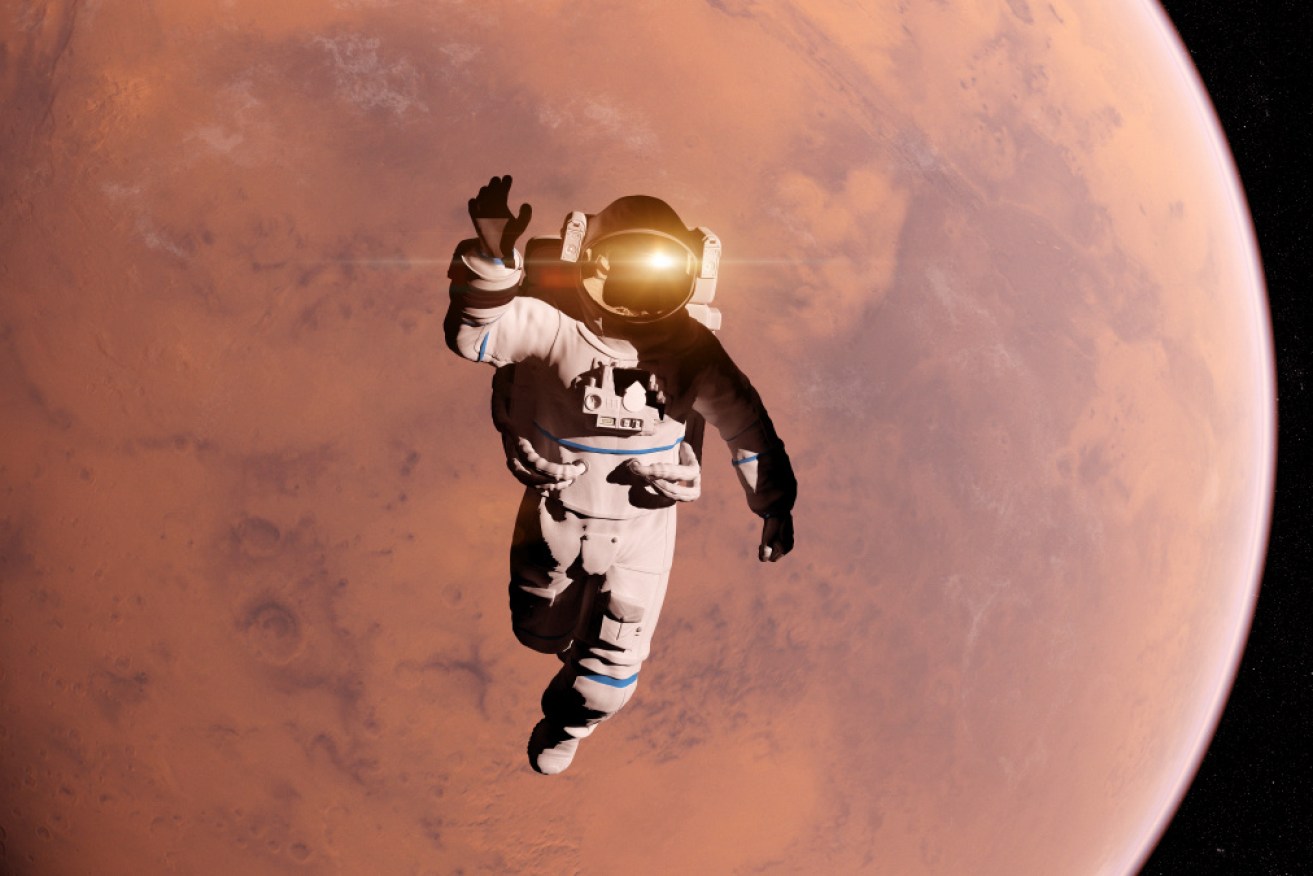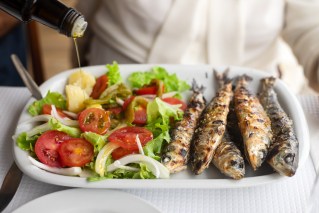Red planet: A full-bodied shiraz could keep astronauts upright on Mars


Getting a little high in space might prevent muscle loss.
As Neil Armstrong and Buzz Aldrin sat in the Lunar Module and slowly worked through their checklists, they munched on ham and salad sandwiches. On such an historic occasion you’d think they might have popped a fine bottle of red.
It would have actually done them good.
A new NASA-funded study from Harvard University suggests that a regular glass of vin rouge may solve the crippling effects of long-term space flight, a fundamental challenge to humans exploring other planets.
Mars is about nine gravity-free months from Earth. By the time the astronauts reach the red planet – with its gravitational pull about 40 per cent that of Earth’s – their muscles will have wasted and they’ll hardly be able to stand, let along walk around looking for Martians.
How to keep astronauts upright
“As the new space race hurtles forward, researchers are asking: how do we make sure the winners can still stand when they reach the finish line?” the researchers ask.
Out in space, muscles and bones weaken. Weight-bearing muscles are hit first and worst, like the soleus muscle in the calf.
“After just three weeks in space, the human soleus muscle shrinks by a third,” said lead author Dr Marie Mortreux, lead author, and researcher in the Department of Neurology, at the Beth Israel Deaconess Medical Center, Harvard Medical School.
“This is accompanied by a loss of slow-twitch muscle fibres, which are needed for endurance.”
Diet could save the day
Dr Mortreux said dietary strategies could be key to solving the problem, “especially since astronauts travelling to Mars won’t have access to the type of exercise machines deployed on the ISS”.
A strong candidate, she said, is resveratrol, a compound commonly found in grape skin and blueberries that has been widely investigated for its anti-inflammatory, anti-oxidative, and anti-diabetic effects.

Dr Marie Mortreux, lead author, and researcher in the Department of Neurology, Harvard Medical School. Photo: Harvard University
Resveratrol has been shown to preserve bone and muscle mass in rats during simulated micro-gravity complete unloading, analogous to microgravity during spaceflight.
“So, we hypothesised that a moderate daily dose would help mitigate muscle de-conditioning in a Mars gravity analogue, too,” she said.
Thus, 24 male rats were exposed to either normal loading (Earth’s gravity) or 40 per cent loading (Mars) for 14 days. To mimic Mars gravity, 12 of the rats were fitted with a full-body harness and suspended by a chain from their cage ceiling.
In each group, half received resveratrol in water; the others got just the water as a control. Otherwise, they fed freely from the same food bowl.
Calf circumference and front and rear paw grip force were measured weekly, and at 14 days the calf muscles were analysed.
The results were impressive
As expected, the rats subjected to the simulated life on Mars – and not fed resveratrol – experienced a weakening of their grip in the fore and rear paws, and shrinkage of their calf circumference, muscle weight and slow-twitch fibre content.
The rats given resveratrol supplementation “almost entirely rescued” front and rear paw grip, to the level of the non-supplemented Earth rats.
What’s more, resveratrol completely protected muscle mass (soleus and gastrocnemius) in the Mars rats, and in particular reduced the loss of slow-twitch muscle fibres.
The protection was not complete, though: the supplement did not entirely rescue average soleus and gastrocnemius fibres cross-sectional area, or calf circumference.
A likely factor was insulin sensitivity. “Resveratrol treatment promotes muscle growth in diabetic or unloaded animals, by increasing insulin sensitivity and glucose uptake in the muscle fibres,” Dr Mortreux said.
“This is relevant for astronauts, who are known to develop reduced insulin sensitivity during spaceflight.”








